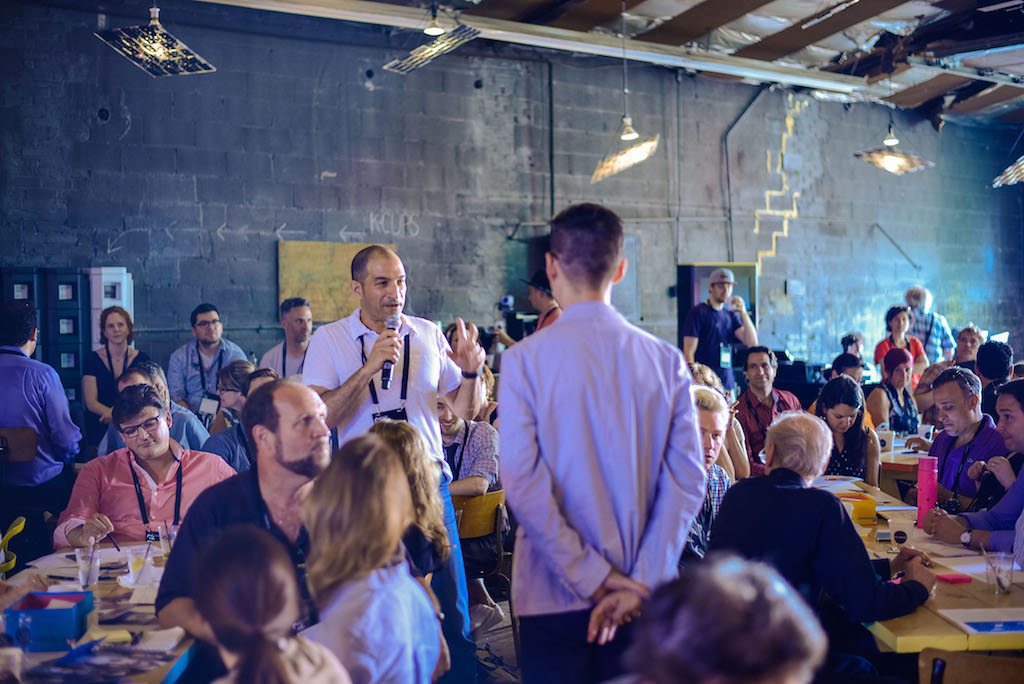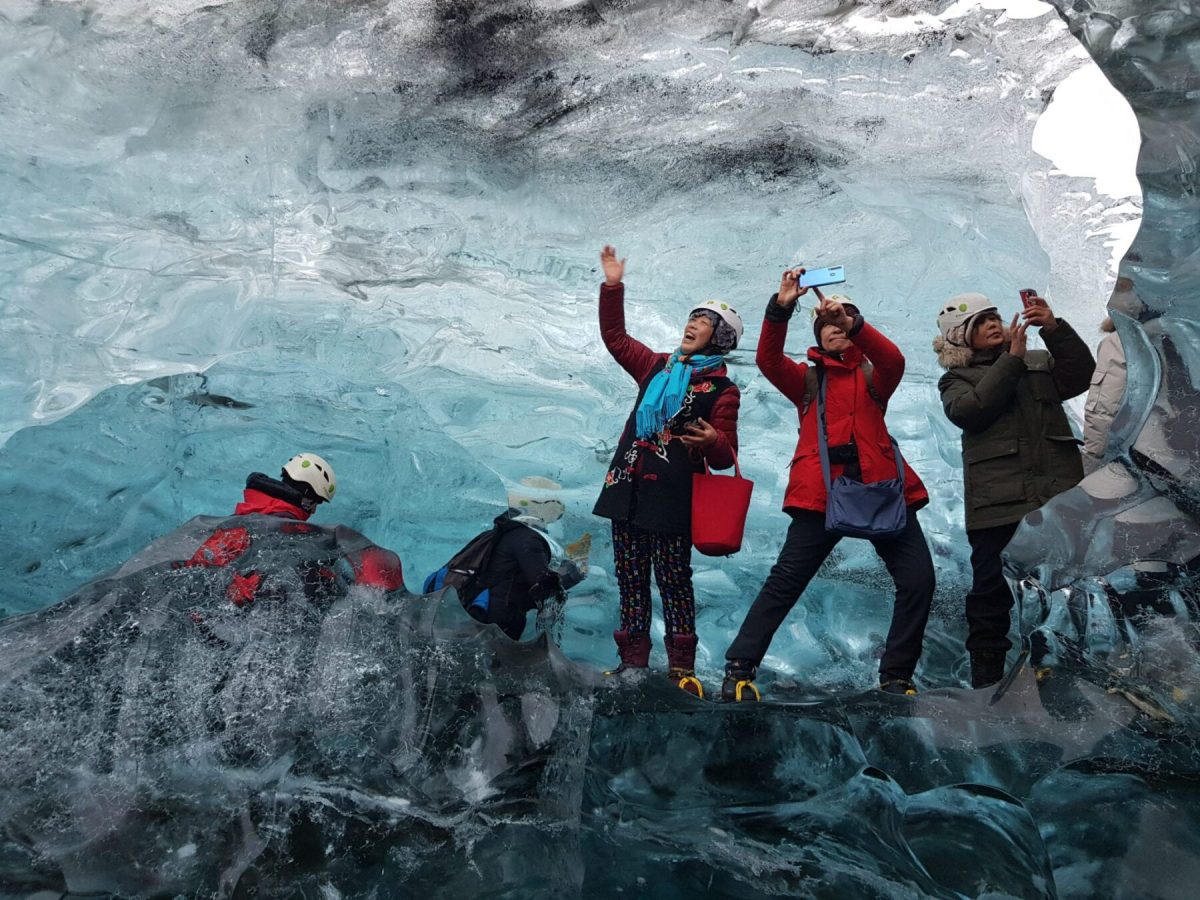Is the Meetings Industry Finally Understanding Its Value? — Meetings Innovation Report

Skift Take
The Future of Meetings & Events
The Iceberg project is a new initiative developed by the Joint Meetings Industry Council (JMIC) to educate the meetings industry about the long-term economic impact of conferences, especially in high-priority, advanced industry sectors.
The theme itself is not necessarily new but there's a definite groundswell of interest in 2017 to better evaluate and codify the impact of events on a destination's economic development and the business outcomes for participants. That's easier said than done, but at least the meetings industry at large is finally beginning to elevate the conversation around why it exists on a global scale.
"The difficulty here is that every single event has a different set of objectives, so therefore every single event is going to have different kinds of legacies and leave-behinds in the community to measure," Rod Cameron, executive director of the JMIC, told me. "We need to make sure that we advance in the area of getting more credible value measurements around the economic policy benefits [derived from events], as opposed to simply spending benefits."
Stay tuned for more about this theme. My upcoming Skift Research Report, Defining Conventions as Urban Innovation and Economic Accelerators — produced in collaboration with Meetings Mean Business — will publish at the end of this month. Read the full JMIC story here.
— Greg Oates, meetings & events editor
Social Quote of the Week
"#MPI Pulse: #WEC17 general session speaker @RonTite discusses thriving in the expression economy: eepurl.com/cJRmmb"
Skift Trends Q&A
 How the Meetings Industry Is Attempting to Redefine Its Value Proposition: The Joint Meetings Industry Council’s “Iceberg” project is ambitious in terms of defining the value of the meetings industry more holistically, but there are a lot of challenges to provide the in-depth case studies required to quantify that successfully. Read more at Skift
How the Meetings Industry Is Attempting to Redefine Its Value Proposition: The Joint Meetings Industry Council’s “Iceberg” project is ambitious in terms of defining the value of the meetings industry more holistically, but there are a lot of challenges to provide the in-depth case studies required to quantify that successfully. Read more at Skift
NEXT GENERATION EVENT UX
This Is What Medical Meetings Will Look Like in the Future: The innovative education model at the University of Texas at Austin’s new Dell Medical School is designed to be a blueprint for the future of medical meetings. The process begins with understanding that the U.S. healthcare system is completely broken, and doctors need to collaborate more intelligently using next-gen connectivity platforms to design a better future for the healthcare industry. Read more at Convene
Leave Your Business Cards At Home With C2 Montreal’s New Smart Badge: PixMob is launching a new attendee badge at C2 2017 that connects with the online platform klik. Participants can use klik to consult their event schedule, register for activities, and plan their agenda, but more importantly, attendees will be able to “klik” their contacts so they appear on the platform's online journal, right next to the daily schedule. Read more at C2 Montreal
The Secret Formula Of Successful Hybrid Meetings [Case Study]: Austria Center Vienna created this case study explaining how conference organizers at UEG Week advanced the field of digestive science through an integrated approach combining online and offline content. Read more at Event Manager Blog
Key Trends at SXSW 2017: The J. Walter Intelligence crew prioritized the biggest trends at South by Southwest in Austin this year, including: the pitfalls of tech, creative artificial intelligence, the rise of biotech, the rise of diversity in tech, dystopian activations, and the need for greater "cyber empathy." Read more at J. Walter Thompson Intelligence
DeSTINATION DISRUPTOrs
Podcast: Why Convention Centers Are Becoming Town Squares: BizBash founder David Adler and Steve Goodling, president and CEO of the Long Beach Area Convention & Visitors Bureau, dig into the growing role of public spaces and event venues to drive long-term community and economic development. There needs to be more conversation around placemaking and activating underserved neighborhoods and venues specifically relating to the meetings sector. There's a lot of fluff in this podcast but at least it's a start. Listen at BizBash
VisitPittsburgh Creates Millennial Committee to Develop a 2022 Vision Plan: More convention bureaus like VisitPittsburgh should develop a millennial task force to envision the future of their cities' visitor economy. Those vision plans could then be culled together to share with the broader industry. Read more at Meetings & Conventions
Tourism Montreal's New 'Generation Series' Tackles Communication Challenges Among Different Age Groups: The best takeaway here is about bridging age gaps: “Mentoring programs should go both ways: the handing down of experience from older to younger and updates on trends and tech tips from younger to older." Read the first, second and third stories in Tourism Montreal's series.
Subscribe
The Skift Meetings Innovation Report is curated by Skift editor Greg Oates [go@skift.com]. The newsletter is emailed every Wednesday.




